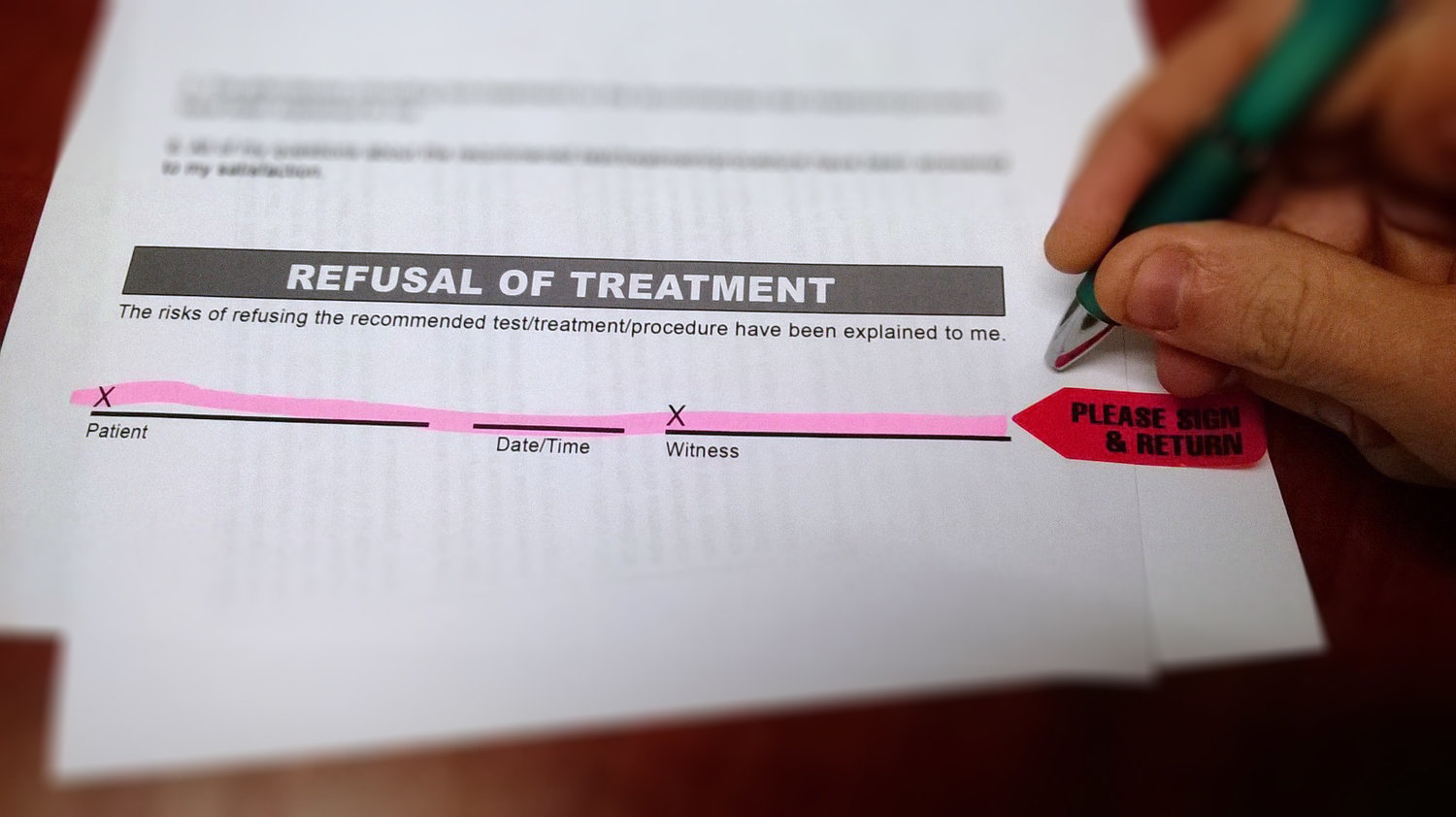Cassandra’s Choice The Right to Refuse Treatment
Main Article Content
Abstract
Cassandra, a teen patient from Connecticut, was diagnosed with Hodgkin lymphoma in September 2014. After being diagnosed, she and her mother missed several appointments, motivating providers at Connecticut Children's Medical Center to notify the state Department of Children and Families.
The child welfare agency investigated Cassandra’s situation and a trial court soon granted temporary custody over her wellbeing.
Cassandra will turn 18 in September of next year and therefore, in the eyes of the court, is still considered a minor and unable to make her own medical decisions. The case went to the Connecticut Supreme Court and the court concluded that Cassandra was not mature enough to make her own medical decisions.
However, Cassandra and her mother both are continuing to rebuke the treatment, calling the chemotherapy treatment “poison” being injected against the patients will. Cassandra’s mother, Jackie, claimed that she was not being negligent and instead seeking alternative treatments to chemotherapy. According to clinicians at Connecticut Children’s Medical Center, chemotherapy would allow an 85 percent chance of survival for Cassandra, while withholding it would result in her dying within two years.
Cassandra had previously been described in November as “very bright” by court documents, with a lucid understanding of her condition. However, she is now confined within a room at Connecticut Children’s Medical Center where she is now mid-treatment.
In most cases, adults have the option to reject a medical treatment despite how successful it may prove in saving the patient’s life. The patient’s wishes are generally treated with utmost respect, and if the patient is too young, the patient’s legal guardian may represent the patient’s wishes. In this case, legal guardianship was transferred to the state Department of Children and Families.
While Cassandra is not considered mature enough to make a choice regarding her own medical decision in this case, she is able to make others due to Connecticut law. In Connecticut, a 17 year old is allowed to obtain contraception, seek psychiatric care, and undergo an abortion, all without parental consent. This begs the question, what does it mean to truly be mature enough to make rational decisions regarding one’s own care?
The court was specifically reviewing this case under the “mature minor doctrine,” already recognized by many other states. In these cases the court allows for hearings wherein minors who are 16 and 17 can prove they are mature enough to make medical decisions. The court denied that there was substantial evidence to prove Cassandra’s maturity.
According to the Assistant Attorney General, Cassandra exhibited “magical thinking” and she was not taking her case as seriously as she should. When a patient does not make the choice society believes she should be making, when is it permissible for society to override the choice?
There are more outcomes to consider besides Cassandra’s chance of survival. With chemotherapy, Cassandra will most likely also experience appetite changes, bleeding problems, malaise, memory changes, hair loss, nausea, sexual changes, and a weakened immune system. This change in Cassandra’s lifestyle represents a liminal stage in her life, faced with forced treatment, her identity and relationship with others will change. The treatment will change her. Quality of life will be drastically reduced and this is not easy to accept for anyone in this case. For Cassandra, her quality of life is more important than overall health.
The clinicians at Connecticut Children’s should respect her wishes; while it may not be easy, it is the right thing to do. Law may dictate that she is not mature enough, however, she is still a human with wishes, hopes, and desires. If Cassandra does not want the “poison” injected into her body, the clinician should honor these wishes, and be there to hold her hand.
Legally, Cassandra may become an adult overnight, but psychologically she has faced circumstances many adults never have to confront until much later. Cassandra is faced with the prospects of depravity, disability, and death, she wants to live according to her wishes.
Does the state and the hospital truly have the right to dictate what will happen to her body more so than she does? Is mortality all that should be considered in this case?
Healing is not a zero-sum game, it is a deeply meaningful process that requires the patient to approve of the treatment, trust the healer, and accept what may come.

